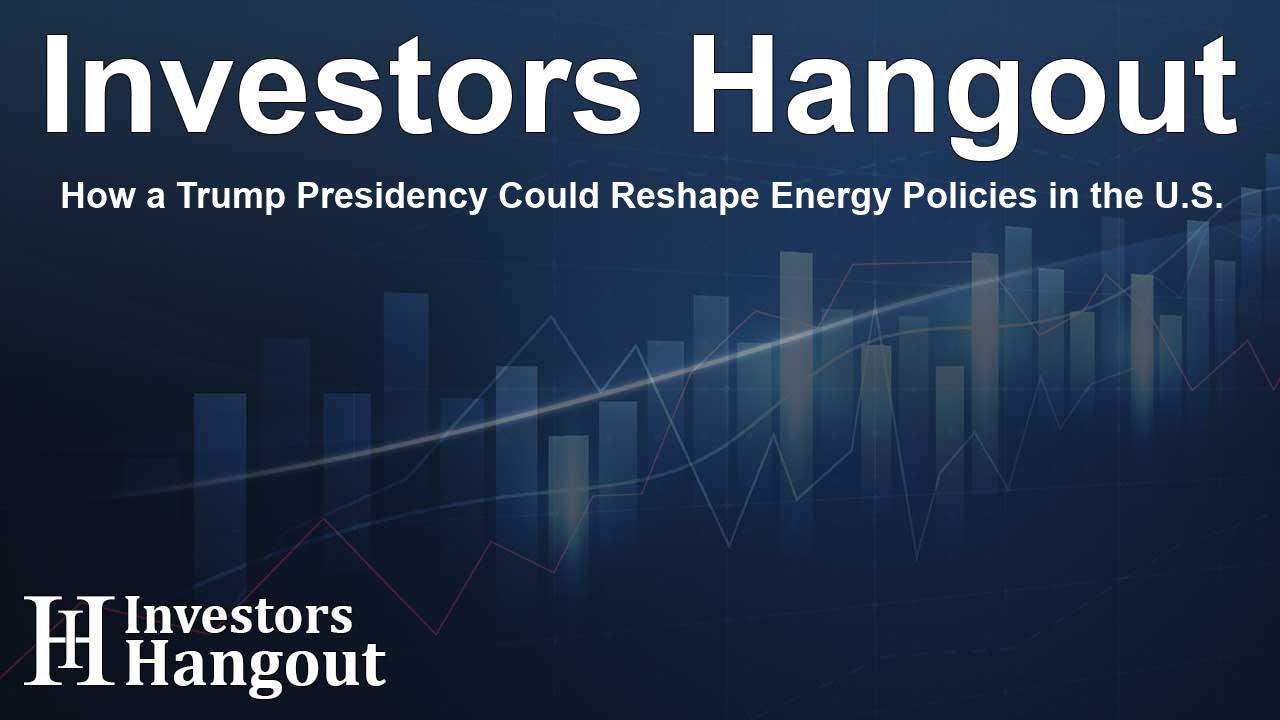How a Trump Presidency Could Reshape Energy Policies in the U.S.

Analyzing the Risks to Renewable Energy Policies
A Trump victory in the next presidential election may introduce uncertainties for the Inflation Reduction Act (IRA), as highlighted by recent insights from Jefferies. This pivotal election could lead to significant shifts in U.S. energy policies.
Concerns Over Renewable Energy Support
According to the analysis, a Trump administration could bring about potential rollbacks on crucial support for renewable energy initiatives. Should Republicans secure control of the Senate, the implications for renewable energy projects could be substantial.
The Legislative Landscape Ahead
Jefferies noted the possibility of a narrowly divided Congress, creating a complex scenario for any proposed changes to IRA provisions. Former President Trump may seek to undo various incentives established for solar and wind energy, but achieving these changes could be challenging in a split Congress.
Challenges in Policy Implementation
The intricacies of a closely divided House may hinder Trump's ability to smoothly enact significant policy shifts. Conversely, if Vice President Harris were to win, the trajectory of IRA policies could differ, as she would likely support the initiative's framework and even advocate for expansions. However, the Republican-held Senate would likely temper more ambitious proposals.
The Partisan Divide and Future Prospects
The ongoing partisan divide regarding renewable energy remains evident. While some states governed by Republican lawmakers might reap benefits from IRA provisions, there is still substantial resistance against incentives for solar and wind initiatives. Jefferies pointed out that while there’s potential bipartisan support for nuclear energy, solar and wind projects face strong opposition.
Global Implications of U.S. Energy Policy
Ultimately, the upcoming election could be decisive for the future of energy policy in the United States. The ramifications could extend beyond national markets, influencing international relations, especially in the context of China's role concerning IRA subsidies and investments.
Frequently Asked Questions
What does the Inflation Reduction Act aim to achieve?
The IRA intends to enhance support for renewable energy initiatives, promoting solar, wind, and other sustainable energy sources to combat climate change.
How could Trump's presidency impact energy policy?
A Trump victory may lead to rollbacks on IRA provisions and reduced support for renewable energy initiatives, potentially reversing current progress.
What challenges would a divided Congress pose?
A narrowly divided Congress could complicate efforts to pass significant energy policy changes, requiring bipartisan support for any major initiatives.
Is there a possibility for bipartisan support in energy?
There might be bipartisan agreement on some aspects of nuclear energy, but solar and wind energy incentives face significant opposition.
What are the international implications of U.S. energy policies?
The direction of U.S. energy policy could influence international markets and relationships, particularly affecting China's engagement with IRA subsidies.
About Investors Hangout
Investors Hangout is a leading online stock forum for financial discussion and learning, offering a wide range of free tools and resources. It draws in traders of all levels, who exchange market knowledge, investigate trading tactics, and keep an eye on industry developments in real time. Featuring financial articles, stock message boards, quotes, charts, company profiles, and live news updates. Through cooperative learning and a wealth of informational resources, it helps users from novices creating their first portfolios to experts honing their techniques. Join Investors Hangout today: https://investorshangout.com/
Disclaimer: The content of this article is solely for general informational purposes only; it does not represent legal, financial, or investment advice. Investors Hangout does not offer financial advice; the author is not a licensed financial advisor. Consult a qualified advisor before making any financial or investment decisions based on this article. The author's interpretation of publicly available data shapes the opinions presented here; as a result, they should not be taken as advice to purchase, sell, or hold any securities mentioned or any other investments. The author does not guarantee the accuracy, completeness, or timeliness of any material, providing it "as is." Information and market conditions may change; past performance is not indicative of future outcomes. If any of the material offered here is inaccurate, please contact us for corrections.